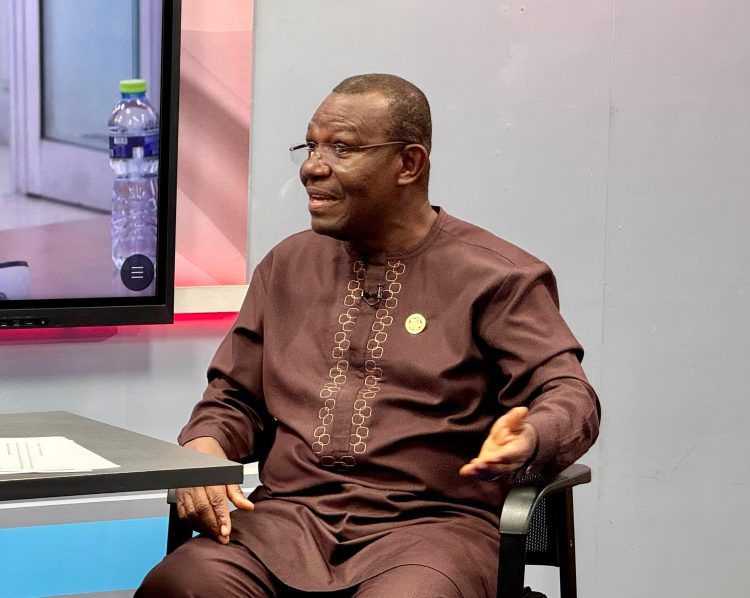Ho West MP Vows to Quit Parliament if Anti-LGBTQ Bill Is Not Passed
The Member of Parliament (MP) for Ho West, Emmanuel Kwasi Bedzrah, has declared that he will not seek re-election or return to Parliament if the Proper Human Sexual Rights and Ghanaian Family Values Bill — commonly known as the Anti-LGBTQ Bill — is not passed and signed into law.
Speaking to the media on Wednesday, October 29, 2025, the lawmaker said his decision stems from a matter of moral conviction and national responsibility, not political gain.
“If the bill is not assented to, I will not return to Parliament,” he stated emphatically, adding that his stance is based on principle rather than political convenience.
Mr. Bedzrah, who has served multiple terms in Parliament and is one of the co-sponsors of the controversial bill, said his political career is anchored on defending Ghana’s cultural and moral values.
“I’ve told my colleagues and my constituents already — if this bill is not passed, I have no business coming back to Parliament,” he said during the live interview. “If I don’t have principles, if I cannot defend the moral values of my country and generations unborn, then what am I doing in politics?”
The MP emphasized that his involvement in politics has always been guided by conscience and service, not popularity or expediency.
“Some of us didn’t come into Parliament just to hold a title or play politics,” he added. “We came to defend what we believe in and to advance the interests of Ghana.”

The Proper Human Sexual Rights and Ghanaian Family Values Bill, first introduced in 2021, seeks to criminalize same-sex relations, advocacy for LGBTQ+ rights, and what its proponents describe as the “promotion of unnatural sexual behaviours.”
Parliament passed the bill earlier this year after months of public hearings, consultations, and heated debate. However, it has not yet received presidential assent — a constitutional requirement before any bill becomes law.
Speaker of Parliament Alban Sumana Kingsford Bagbin recently clarified that the bill would need to be reintroduced in the current (Ninth) Parliament since all pending legislation from the dissolved Eighth Parliament automatically lapsed.
“We have a new Parliament, and therefore all businesses pending in the Eighth Parliament have ended,” the Speaker explained. “The Human Sexual Rights and Family Values Bill will be reintroduced for consideration and passage.”
The proposed legislation has divided opinion across Ghana and drawn significant international attention. Supporters, including religious and traditional leaders, argue that the bill protects Ghana’s cultural heritage, family structure, and moral identity.
Critics — including local civil society groups and international human rights organizations — have described it as discriminatory and inconsistent with the country’s constitutional protections for individual freedoms.
Ghana’s stance on LGBTQ+ issues has also attracted global scrutiny, with Western governments and development partners warning that the law could affect foreign aid, investment, and diplomatic relations.
Despite such warnings, public opinion within Ghana remains overwhelmingly supportive of the bill. A 2023 survey by the Centre for Democratic Development (CDD-Ghana) found that over 80 percent of Ghanaians opposed same-sex relationships and backed laws to restrict LGBTQ+ activities.

For MP Emmanuel Kwasi Bedzrah, the issue transcends politics. He insists that defending what he calls Ghana’s “traditional moral code” is a duty to both his faith and future generations.
“My whole life and career are rooted in principle. I cannot compromise on this,” he said. “If the bill fails, I will consider my political journey complete because I would have no moral foundation left to stand on.”
Political observers note that Mr. Bedzrah’s comments reflect the intensity of public sentiment surrounding the bill. For many lawmakers, support for the legislation has become a moral litmus test in an election cycle where issues of culture, religion, and identity resonate deeply with voters.
However, others caution that taking extreme positions could further polarize national discourse and limit Parliament’s ability to balance moral concerns with human rights obligations.
Ghana’s handling of the Anti-LGBTQ Bill is being closely watched across the continent, where similar debates are unfolding. In Uganda, President Yoweri Museveni signed one of Africa’s harshest anti-gay laws in 2023, drawing widespread international condemnation. Kenya, Tanzania, and Nigeria have also introduced or reinforced comparable legislation in recent years.
Experts say Ghana’s decision could set an influential precedent for other African democracies grappling with the tension between traditional values and international human rights commitments.
Political analyst Dr. Kwame Asah-Asante of the University of Ghana notes that the issue places Ghana “at the intersection of culture and diplomacy.”
“The government must balance its internal moral expectations with its external obligations,” he said. “How Ghana navigates this will have implications beyond domestic politics.”

As Parliament prepares to re-table the bill, MPs like Bedzrah are expected to push for its swift passage and presidential assent. But the process could face procedural delays, renewed legal scrutiny, or diplomatic pressure — all of which may test the resolve of both Parliament and the Executive.
For now, the Ho West legislator remains resolute. His message to Parliament and Ghanaians is clear: his continued presence in the House depends on the bill’s passage into law.
“This is about principles and posterity,” he reiterated. “If this bill doesn’t pass, I’m done.”
The debate over the Anti-LGBTQ Bill continues to underscore Ghana’s struggle to reconcile its traditional values with constitutional freedoms and global partnerships. Whether or not the legislation passes, it has already reshaped national conversations about morality, governance, and identity.
As the political dust settles, the question remains: can Ghana chart a path that honours both its cultural roots and its democratic ideals?
Read also: Ntim Fordjour Vows to Protect Anti-LGBTQ Bill from Amendments as Parliament Reconsiders Legislation

